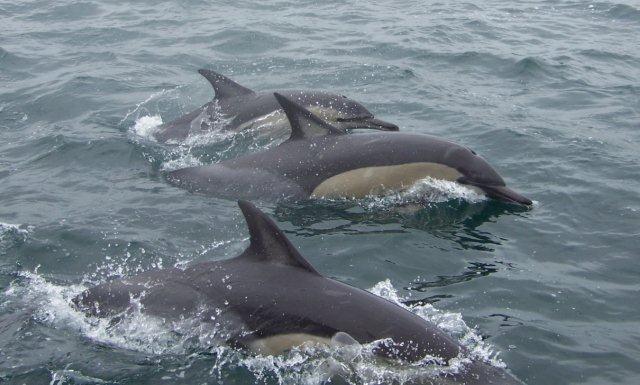Africa has one of the most diverse and exciting landscapes in the whole world, and it’s easy to focus on its mountains and plains when you picture it. But Africa’s oceans are a wonder all of their own, and agencies like O.R.C.A are dedicated to the conservation and development of important offshore ecosystems. As the name suggests, O.R.C.A is focused on the health of whales and dolphins around Africa’s shores, but they also spend time promoting the importance of conservation to local communities. Volunteers at the O.R.C.A Centre will play a key role in perfecting a new sustainability model, which will help improve the condition of the entire African coastline.
The O.R.C.A Marine Foundation
O.R.C.A was founded by two friends, Tony Lubner and Mark Valentine, who noticed the disappearance of dolphins from one of their favourite hiking spots near Plettenberg bay. Local fishermen had begun to capture greater amounts of silverfish, and without their favourite food source the dolphins were leaving in vast numbers. Tony and Mark soon saw a need for better education for those living and working in the area, to ensure that the amazing marine wildlife of Plettenberg Bay was not damaged by uncontrolled fishing and industrialisation. The organisation was a massive success, and today Plettenberg Bay is a beautiful place teeming with sea life and perfect for study.
Volunteering with O.R.C.A
Volunteers live in a shared house for the duration of their visit. The house itself is only a few kilometres from the O.R.C.A centre, and is a fantastic place to live, get to know your fellow volunteers, and of course have the odd barbeque (braii) or ten! When you’re not enjoying the sunshine and scenery, O.R.C.A will have you hard at work. Volunteers get to enjoy a diverse range of projects; surveying marine life, analysing water quality and collecting data on different pods of whales and dolphins – to name just a few!
As well as working as a part of the Centre’s sustainability projects, there will also be opportunities to get involved with Ocean Blue Adventures – the commercial venture which enabled Tony and Mark to initially start the O.R.C.A Marine Foundation. As part of Ocean Blue Adventures, volunteers work with local communities to provide educational initiatives, teaching children about the importance of conservation and spreading the word about the vital work O.R.C.A is doing.
Plettenberg Bay and the east coast
Africa’s east coast rivals the land in terms of its variety of life. Manta rays, tiger sharks, dolphins, tropical fish and whales all make their homes amongst the open waters and coral reefs. As a volunteer you will have plenty of time to experience these creatures and their remarkable habitats either as a part of the tours put on regularly by Ocean Blue Adventures, or in your free time.
The East African coast has some incredible coral reefs, and rewards both scuba divers and snorkelers equally. Some divers may even find themselves swimming alongside whale sharks, or getting caught in a swarm of tropical fish amongst the coral reefs. Out of the water, Plettenberg Bay is known for its beauty, and was originally named “Beautiful Bay” by early explorers. It boasts a large seal colony, easily seen from the beach, and attracts plenty of tourists interested in marine animals. Whale sightings are quite common, so volunteers should definitely have their camera with them at all times! The nearby Robberg Nature Reserve is also well worth a visit. Only a few kilometres walk from Plettenberg Bay, the rocks in the reserve date back 120 million years and there is evidence of stone age habitation in caves along the length of the reserve too. If you’re looking for the perfect photograph of the bay, the reserve is definitely the place to set up your camera.
Volunteering at O.R.C.A is a hugely rewarding experience and past volunteers have told us they felt well supported and engaged throughout the length of their stay. Here at Gap Africa we are proud to be associated with the foundation, and of the positive impact that our volunteers have had over the years.
If you’d like to find out more about this project, or any of our other opportunities, please click here.

